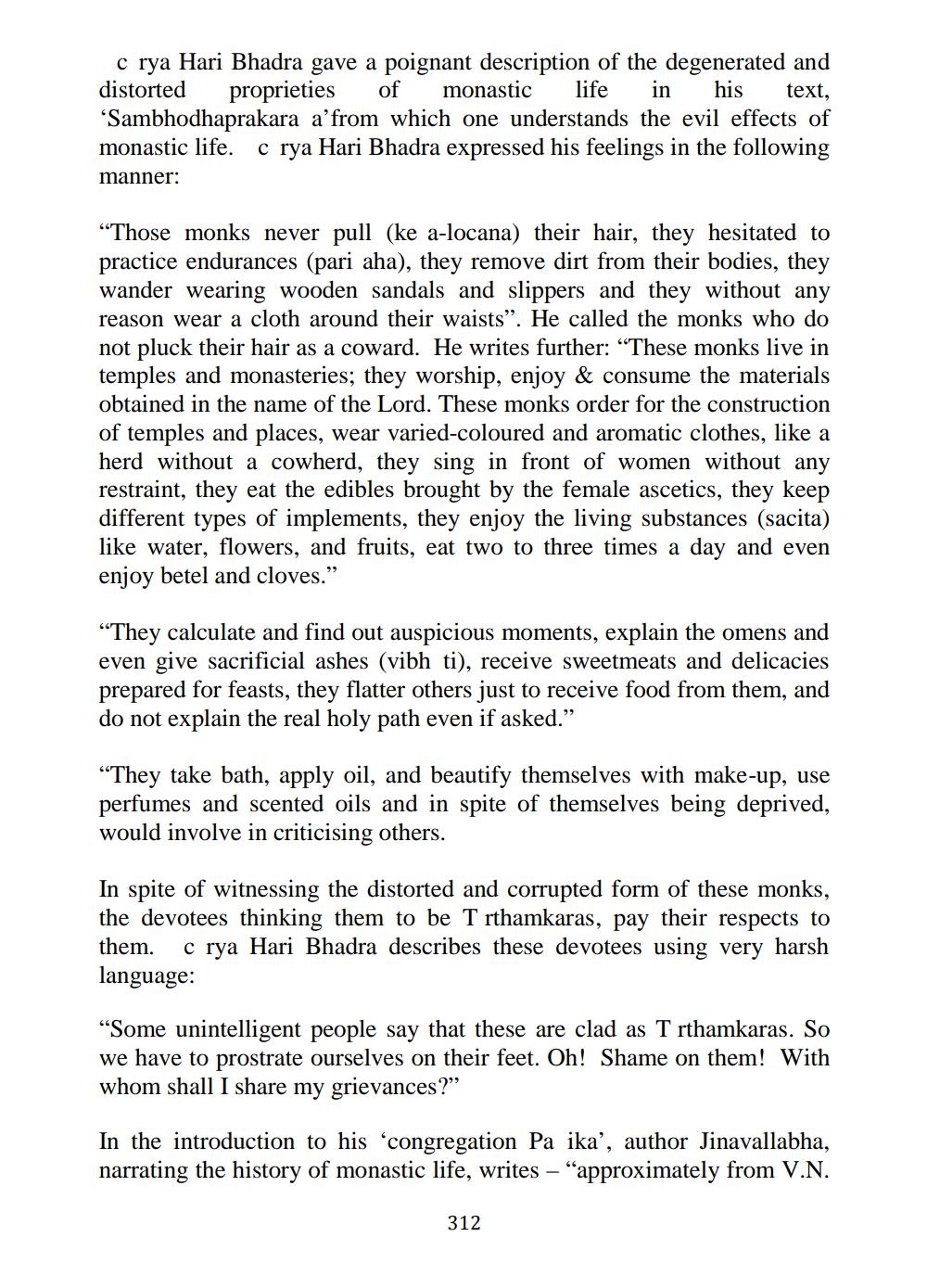________________
c rya Hari Bhadra gave a poignant description of the degenerated and distorted proprieties of monastic life in his text, 'Sambhodhaprakara a'from which one understands the evil effects of monastic life. crya Hari Bhadra expressed his feelings in the following
manner:
"Those monks never pull (ke a-locana) their hair, they hesitated to practice endurances (pari aha), they remove dirt from their bodies, they wander wearing wooden sandals and slippers and they without any reason wear a cloth around their waists". He called the monks who do not pluck their hair as a coward. He writes further: "These monks live in temples and monasteries; they worship, enjoy & consume the materials obtained in the name of the Lord. These monks order for the construction of temples and places, wear varied-coloured and aromatic clothes, like a herd without a cowherd, they sing in front of women without any restraint, they eat the edibles brought by the female ascetics, they keep different types of implements, they enjoy the living substances (sacita) like water, flowers, and fruits, eat two to three times a day and even enjoy betel and cloves."
"They calculate and find out auspicious moments, explain the omens and even give sacrificial ashes (vibh ti), receive sweetmeats and delicacies prepared for feasts, they flatter others just to receive food from them, and do not explain the real holy path even if asked.”
"They take bath, apply oil, and beautify themselves with make-up, use perfumes and scented oils and in spite of themselves being deprived, would involve in criticising others.
In spite of witnessing the distorted and corrupted form of these monks, the devotees thinking them to be T rthamkaras, pay their respects to them. c rya Hari Bhadra describes these devotees using very harsh language:
"Some unintelligent people say that these are clad as T rthamkaras. So we have to prostrate ourselves on their feet. Oh! Shame on them! With whom shall I share my grievances?"
In the introduction to his 'congregation Pa ika', author Jinavallabha, narrating the history of monastic life, writes - "approximately from V.N.
312




